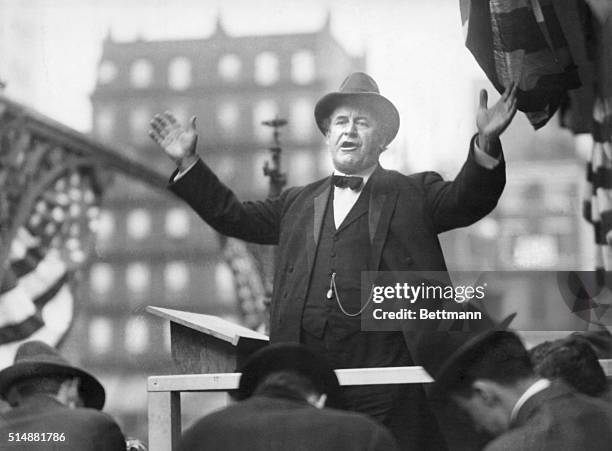Is Network a Conspiracy? Corporate Control and the Predictive Power of Media Satire

In 1976, Sidney Lumet's Network shocked audiences with its darkly comedic portrayal of a news network descending into madness in pursuit of ratings. While often lauded as a brilliant satire of the media landscape, a more unsettling interpretation lingers: is Network merely a reflection of media culture, or a prescient blueprint for its deliberate degradation? This article, framed from the perspective of a media studies scholar, explores the conspiracy theory that Network is not just satire, but a predictive warning about the engineered collapse of journalistic integrity, orchestrated by corporate interests to control public discourse. We will examine key scenes and dialogue, connecting them to contemporary media practices and anxieties about corporate power, ultimately arguing that Network's enduring relevance stems from its unsettlingly accurate portrayal of a media system driven by profit over truth.
Arthur Jensen's Speech as Corporate Manifesto: A Prophecy Fulfilled?
One of the most chilling scenes in Network is Arthur Jensen's impassioned speech to Howard Beale. Jensen, the chairman of the Communications Corporation of America, unveils a worldview where nations and ideologies are subservient to the "primal forces of nature," namely, the corporation. He declares, "There is no America. There is no democracy. There is only IBM and ITT and AT&T and DuPont, Dow, Union Carbide, and Exxon. Those are the nations of the world today." This isn't just corporate hubris; it's a clear articulation of a corporate cosmology that seeks to transcend national boundaries and control global consciousness. This language prefigures contemporary anxieties about corporate power.
Alt text: A side-by-side comparison. On the left, a still from Network shows Arthur Jensen delivering his speech to Howard Beale. On the right, a graphic illustrates media ownership concentration in the United States, with the major media conglomerates displayed.
Jensen's vision has, in many ways, become a reality. Media consolidation has placed an unprecedented amount of power in the hands of a few multinational corporations. Companies like Comcast, Disney, and News Corp control vast swathes of the media landscape, influencing news narratives and shaping public opinion. The concerns raised by Jensen's speech echo Noam Chomsky and Edward Herman's "propaganda model," which argues that media ownership and funding sources filter news content, serving the interests of powerful elites.[1] The Telecommunications Act of 1996, for example, significantly deregulated media ownership rules, paving the way for further consolidation and diminishing local voices. As Ben Bagdikian noted in The Media Monopoly, this concentration of power creates a "private ministry of information and culture."[2]
Howard Beale's Transformation as Sensationalism: A Commodity of Madness
Howard Beale's descent into madness and subsequent on-air rants are central to Network's critique of sensationalism. Initially a respected anchorman facing the end of his career, Beale transforms into a screaming prophet, railing against the "bullshit" of modern life. His "mad as hell" persona becomes a ratings goldmine, exploited by the UBS network for profit. This narrative foreshadows the rise of "infotainment," where the lines between news and entertainment are blurred, and the pursuit of viewership trumps journalistic integrity.

Alt text: A split screen image. On one side, a still from Network of Howard Beale ranting on television. On the other side, a montage of images from contemporary cable news channels showing sensationalism and partisan rhetoric.
Contemporary cable news channels often rely on sensationalism and partisan rhetoric to attract viewers. Fox News and MSNBC, for example, have been criticized for prioritizing opinion and emotional appeals over factual reporting. Beale's transformation is mirrored in the constant need to amplify stories to capture attention. The visual cues used in the film—extreme close-ups, frenetic camera movements, and exaggerated lighting—underscore Beale's mental instability and the network's exploitation of his vulnerability. These techniques are now commonplace in media, used to heighten drama and manipulate emotions.
UBS Network's Pursuit of Ratings as Profit Over Integrity: Foreshadowing Reality TV
The UBS network's willingness to exploit Beale's mental state for financial gain highlights the prioritization of profit over journalistic integrity. Diana Christensen, the ruthless programming executive, sees Beale as a commodity to be exploited, regardless of the consequences. The creation of "The Howard Beale Show" is a cynical attempt to capitalize on his popularity, foreshadowing the rise of reality television and the exploitation of individuals for entertainment purposes. The Kardashian empire, with its focus on personal drama and manufactured narratives, exemplifies this trend. This ruthlessness extends to the decision to murder Beale when his ratings begin to fall.

Alt text: A juxtaposition of images. On one side, a scene still from Network of Diana Christensen calculating ratings. On the other side, a news story about a media company prioritizing profits over journalism.
UBS's actions reflect the broader trend of media deregulation and the erosion of public service broadcasting. The Telecommunications Act of 1996, mentioned earlier, not only facilitated media consolidation but also weakened regulations designed to protect the public interest. Media mergers and acquisitions, such as Disney's acquisition of 21st Century Fox, have further concentrated corporate control over news content, potentially limiting diverse perspectives and prioritizing shareholder value over journalistic ethics. Gannett's decision to lay off local news reporters to boost shareholder value provides a tangible example of this dynamic. Local news becomes yet another casualty in the pursuit of profits.
The Assassination of Beale: Silencing Dissent
The assassination of Howard Beale represents the ultimate silencing of dissenting voices within the media landscape. Beale's attempt to challenge the established corporate order, after being enlightened by Jensen, ultimately leads to his demise. His death serves as a cautionary tale about the dangers of independent thought and the constraints imposed by corporate interests on journalistic freedom.

Alt text: A composite image combining a still of Howard Beale dead with a television screen displaying static. Overlaid are faint corporate logos, suggesting corporate influence.
While the assassination is a dramatic plot point, it symbolizes the ways in which dissenting voices can be marginalized or suppressed by powerful institutions. The fear of losing one's job, reputation, or access to information can discourage journalists from challenging the status quo. Beale's death underscores the high stakes involved in speaking truth to power, particularly within a corporate-dominated media system.
Network and the Cultural Context: Anxieties of the 1970s
Network emerged during a period of significant social and political upheaval. The 1970s were marked by economic recession, the Watergate scandal, and growing distrust of institutions. These factors contributed to a climate of anxiety and skepticism, which Network captured and amplified. The film reflects a deep-seated fear that corporate power was undermining democratic values and manipulating public opinion.

Alt text: A still of Beale delivering the speech, face illuminated, against a darkened studio backdrop. Overlaid is an image of modern-day social media users fixated on their screens, their faces illuminated by the same glow.
The film's prescience lies in its ability to tap into these anxieties and project them onto the media landscape. Network is not just a satire; it's a cultural artifact that reflects and amplifies concerns about the erosion of journalistic integrity and the manipulation of public opinion. The film's enduring relevance speaks to the persistence of these anxieties in the 21st century. The shift in media consumption has also shifted. Where Beale challenged passive television viewers, modern consumers now create and disseminate content on social media, often unaware of the same manipulation tactics they rail against.
Conclusion: Network as a Warning
Network continues to resonate with audiences because it speaks to a fundamental truth about the relationship between media, power, and democracy. While the film may not be a literal conspiracy blueprint, it offers a powerful critique of the corporate forces shaping our media landscape. By analyzing key scenes and dialogue, we can see how Network's dystopian vision has, in many ways, become a reality. The prioritization of profit over journalistic integrity, the rise of sensationalism, and the silencing of dissenting voices are all trends that continue to plague the media today.
To combat these trends, we must become more critical consumers of media. Media literacy education is essential for empowering individuals to recognize manipulation tactics and make informed decisions about the information they consume. By understanding the dynamics of corporate power and media ownership, we can work towards a more democratic and accountable media system. Are we truly "mad as hell," and if so, what are we going to do about it?
References
[1] Chomsky, Noam, and Edward S. Herman. Manufacturing Consent: The Political Economy of the Mass Media. Pantheon Books, 1988.
[2] Bagdikian, Ben H. The Media Monopoly. Beacon Press, 2004.
This analysis presents a critical interpretation of Network and its potential connection to contemporary media practices. While the film may offer insights into the dynamics of corporate power and media manipulation, this interpretation is not definitive and should be considered within the broader context of media studies and cultural criticism.
Author Bio for Vivian Holloway: Dr. Vivian Holloway is a professor of Media Studies specializing in the political economy of media, the impact of corporate ownership on news content, and the relationship between media and democracy. She holds a Ph.D. from Columbia University and is the author of "Manufacturing Consent in the Digital Age," a critical analysis of corporate media power. Dr. Holloway is a frequent commentator on media ethics and serves on the advisory board of the Media Literacy Project.